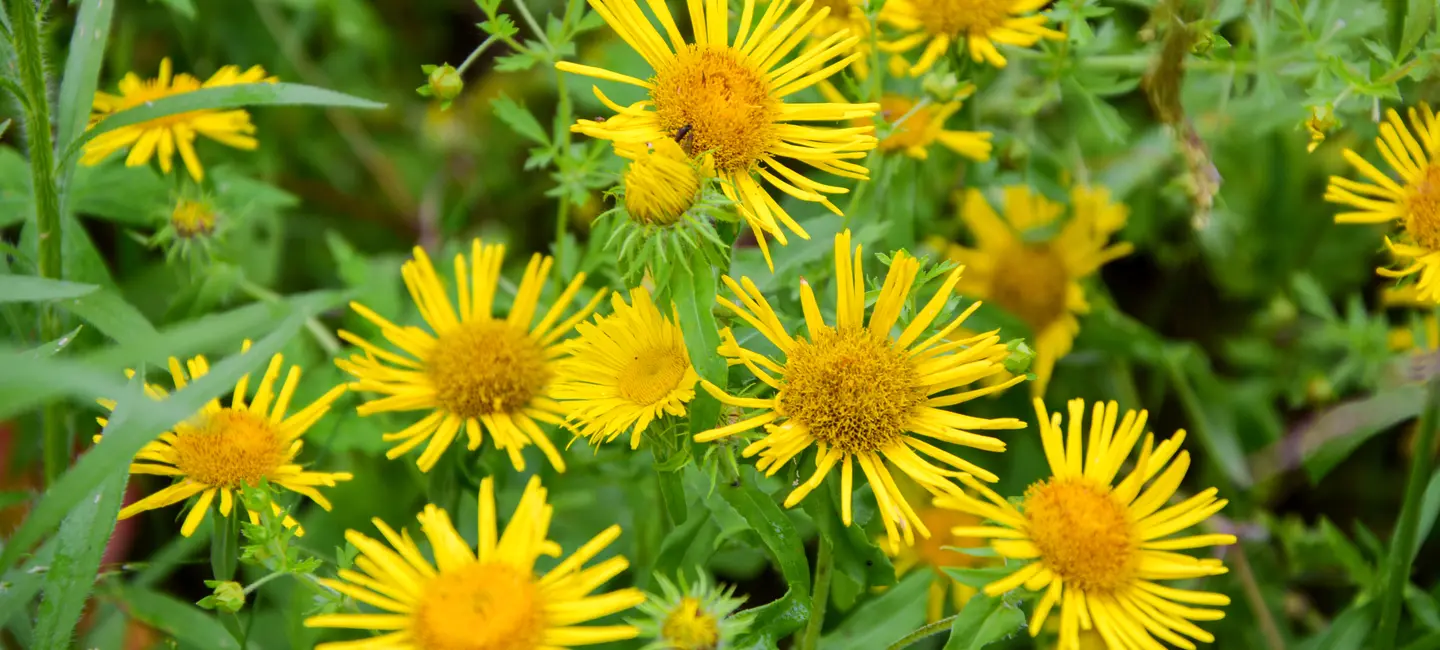
Elecampane (Inula helenium) is a flowering herb. The root of the plant is sometimes used to make medicine.
Elecampane contains chemicals that might reduce inflammation (swelling) and kill bacteria. Elecampane is sometimes used to flavor foods and beverages or as a fragrance in cosmetics and soaps.
Elecampane is used for asthma, bronchitis, intestinal worms, and many other conditions, but there is no good scientific evidence to support its use.
Is It Effective?
There is interest in using elecampane for a number of purposes, but there isn't enough reliable information to say whether it might be helpful.
Is it Safe?
When taken by mouth: Elecampane is possibly safe for most adults. But large amounts of elecampane are possibly unsafe. Large amounts can cause vomiting, diarrhea, spasms, and paralysis.
Special Precautions & Warnings:
Pregnancy and breast-feeding: It's likely unsafe to take elecampane when pregnant or breast-feeding. Avoid use.
Allergy to ragweed and related plants: Elecampane may cause an allergic reaction in people who are sensitive to the Asteraceae/Compositae plant family. Members of this family include ragweed, chrysanthemums, marigolds, daisies, and many others. If you have allergies, be sure to check with your healthcare provider before taking elecampane.
Surgery: Elecampane affects the central nervous system and can cause sleepiness. There is a concern that it might cause too much sleepiness if combined with anesthesia and other medications used during and after surgery. Stop using elecampane at least 2 weeks before a scheduled surgery.
Sedative medications (CNS depressants)
Interaction Rating=Moderate Be cautious with this combination.
Elecampane might cause sleepiness and slowed breathing. Some medications, called sedatives, can also cause sleepiness and slowed breathing. Taking elecampane with sedative medications might cause breathing problems and/or too much sleepiness.
Herbs and supplements that cause sleepiness: Elecampane might cause sleepiness and slowed breathing. Taking it along with other supplements with similar effects might cause too much sleepiness and/or slowed breathing in some people. Examples of supplements with this effect include hops, kava, L-tryptophan, melatonin, and valerian.
There are no known interactions with foods.
There isn't enough reliable information to know what an appropriate dose of elecampane might be. Keep in mind that natural products are not always necessarily safe and dosages can be important. Be sure to follow relevant directions on product labels and consult a healthcare professional before using.
Alant, Aster helenium, Aster officinalis, Aunée, Aunée Officinale, Elfdock, Elfwort, Enule Campagne, Grande Aunée, Helenio, Helenium grandiflorum, Horse-Elder, Horseheal, Indian Elecampane, Inula, Inula helenium, Inule Aulnée, Inule Aunée, Inule Hélénie, Œil-de-cheval, Scabwort, Velvet Dock, Wild Sunflower, Yellow Starwort.
Information on this website is for informational use only and is not intended to replace professional medical advice, diagnosis, or treatment. While evidence-based, it is not guaranteed to be error-free and is not intended to meet any particular user’s needs or requirements or to cover all possible uses, safety concerns, interactions, outcomes, or adverse effects. Always check with your doctor or other medical professional before making healthcare decisions (including taking any medication) and do not delay or disregard seeking medical advice or treatment based on any information displayed on this website.
© TRC Healthcare 2024. All rights reserved. Use and/or distribution is permitted only pursuant to a valid license or other permission from TRC Healthcare.
